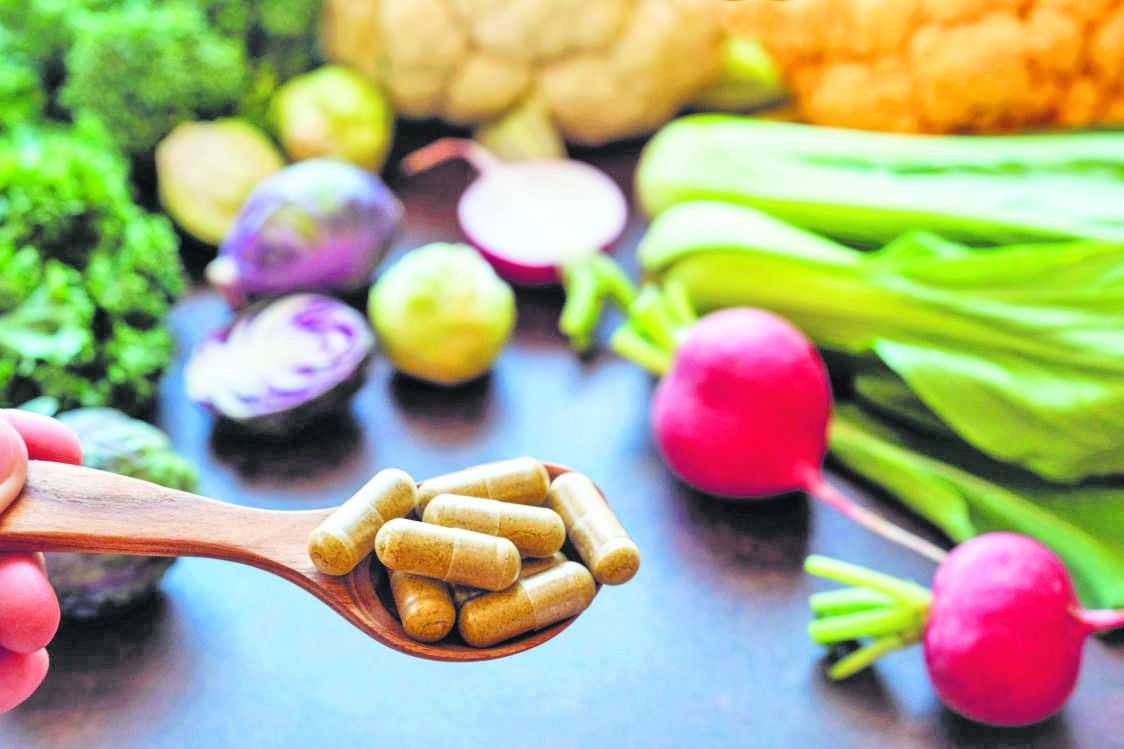


To maintain the body’s functioning properly, vitamins perform various functions. Some vitamins aid in preventing infections and maintaining healthy neurons, while others may aid in your body’s ability to use food as fuel or in the normal clotting of your blood. Most of these vitamins can be obtained in sufficient amounts through food if you abide by the Dietary Guidelines.
Vitamin B1: The Recommended Dietary Allowance (RDA) for men and women ages 19 and older is 1.4 mg daily. For pregnant and lactating, the amount increases to 2.0 mg daily. Thiamine, or vitamin B1, is a water-soluble vitamin found naturally in some foods and sold as a supplement. It plays a vital role in the growth and function of various cells. Foods high in thiamine include fish, seeds, nuts, beans, green peas, tofu, brown rice, and asparagus.
Vitamin B12: The RDA for men and women ages 19 and older is 2.2 mg daily. For pregnant and lactating, the amount increases +0.25 mg daily. Vitamin B12 is required for the development and function of the central nervous system, healthy red blood cell formation, and DNA synthesis. Vitamin B12 is naturally present in foods of animal origin, including fish, meat, poultry, eggs, and dairy products.
Vitamin K: The RDA for men and women ages 19 and older is 55 ug daily. It is a fat-soluble vitamin that comes in two forms. The primary type is called phylloquinone, found in green leafy vegetables like collard greens, kale, and spinach. Vitamin K helps to make various proteins that are needed for blood clotting and the building of bones.
Vitamin A: The RDA for men ages 19 and older is 1000 IU daily, and for women is 840 IU/day. For pregnant and lactating, the amount increases to 900 IU daily. It stimulates the production and activity of white blood cells, remodels bone, helps maintain healthy endothelial cells (those lining the body’s interior surfaces), and regulates cell growth and division. Leafy green vegetables, orange and yellow vegetables (carrots, sweet potatoes, pumpkin), tomatoes, red bell pepper, mango, fish oils, milk, and eggs.
A balanced diet is the primary and best strategy to include these essential nutrients. You may maximize your nutritional intake and encourage optimal wellness by ingesting various vitamin-rich meals. A holistic approach to diet can increase the efficiency of vitamins in preserving your well-being because they frequently function in synergy.